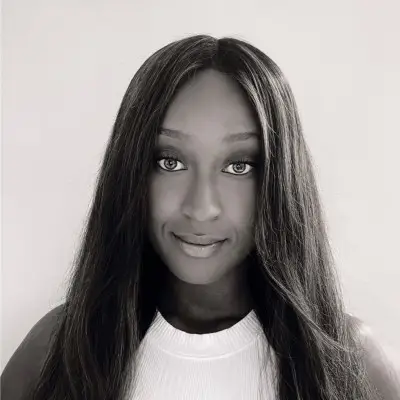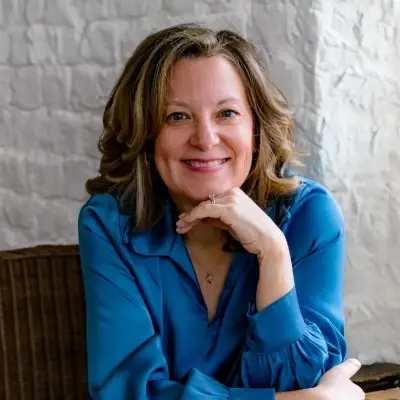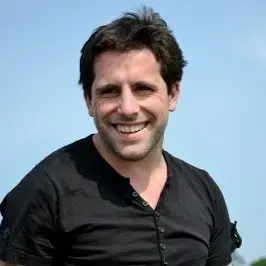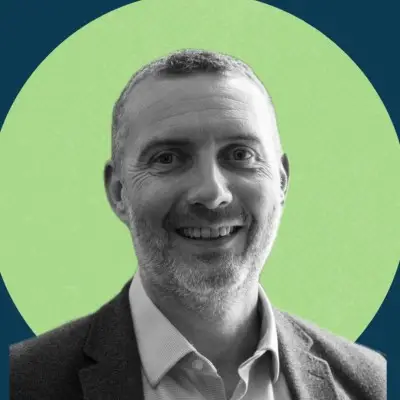Julia Rogers is a 52-year-old mum of two children (one with diagnosed SEN, the other awaiting a diagnosis). She tells us that, “I live with my family in Bromley in the UK. I have been a coach now for over 10 years, and I also supervise, mentor, and train other coaches. My mission is to educate people about the way their minds are structured so that they can make better choices and have a greater understanding of themselves.”
Tell us about your life before the venture/leading up to your venture?
I was very badly bullied at school and have always wanted to find a way to help people so that they don’t experience the feelings of loneliness that I had when I was younger. In my early 20s, I studied psychodynamics at Master’s level, with a view to becoming a psychotherapist. I was far too young for this, so I went and got some work experience in mental health services (outreach and residential), both providing direct support and leading to managing these services. When I had my children, I realized that this wasn’t something I could continue to do as a mother of young children, so I stayed at home with them for a few years. I did some voluntary work coaching the long-term unemployed to go back to work and realized that this is where I wanted my career to go. I decided to become a coach and obtain a proper coaching qualification. I built my business up from there.
Tell us something about your organization. What is it about and how is it helpful for people?
I coach a variety of people—including CEOs of multi-academy trusts and large hospital trusts, people working in local government, and freelancers. The main thing that connects them is that they want to understand themselves better so that they can get the best out of their lives. I supervise and mentor other coaches so that they can provide the best level of coaching, and I also train coaches in psychodynamics. On an organizational level, I have provided bespoke anxiety and mental health training to meet the needs of each organization. My coaching, mentoring, supervision, and training challenge, educate, and support the people that I work with—whatever way I am working with them. My key message is to give people a greater understanding of how their minds work so that they can make the right choices for themselves and not rely on quotes on social media, which can be so generic they are meaningless.
What has been the response of the consumers towards your venture?
I am an MCC coach within the ICF (International Coaching Federation), which is the highest level attainable. With the EMCC, I am an accredited Coaching Supervisor and Senior Practitioner Coach. I have many clients who return to work with me after several years, and I am referred to by clients who have been happy with the work that we have done together. I have many testimonials from very pleased clients.
How has your life changed because of your venture?
Developing my career around coaching has enabled me to develop my confidence more than I ever thought possible. I have met incredible people—who I would never have had the chance to meet previously. Several of the coaches that I trained with 10 years ago are among my closest friends. I have learned a huge amount about myself, which has helped my relationships and improved my parenting immensely! Having my own business gives me a sense of purpose and pride. It’s also essential for me to be a role model to my children, especially my daughter. My best friend of over 30 years died three years ago, and this has made me realize that it’s important to do what makes you happy in life and what you see a purpose in.
What are you working on right now?
I have a podcast, The Dynamics of Everyday Life, which is a few months old—so far I have had a great response to this. I have just started writing a series of articles under the umbrella title of “Why Do I Do This?” giving people a window into psychodynamic theories and why they might be responding in certain ways in situations. Social media memes might feel helpful when you read them, but there is no substance behind them to help us make changes in our lives—which can be challenging—so I am writing articles to educate people more. We are more intelligent than social media leads us to believe! I’m also developing some training courses for coaches and continuing my CPD by doing an additional coach training program at Tavistock Consulting.
Give a motivational message for the audience/women who are reading this.
My children tell me that my favorite word is “yet,” as whenever they say they can’t do anything, I always add “yet” onto what they are saying. I feel this is true in life—if we want to try something but are put off by thinking we can’t do it, then add “yet” to the end of the sentence because it moves a statement from a negative one to one filled with optimism.
Social Links:
- Instagram: Julia.rogers007 | The Dynamics of Everyday Life
- Medium
- X (formerly Twitter): @Tdoelpodcast
- Podcast: Dynamics of Everyday Life










